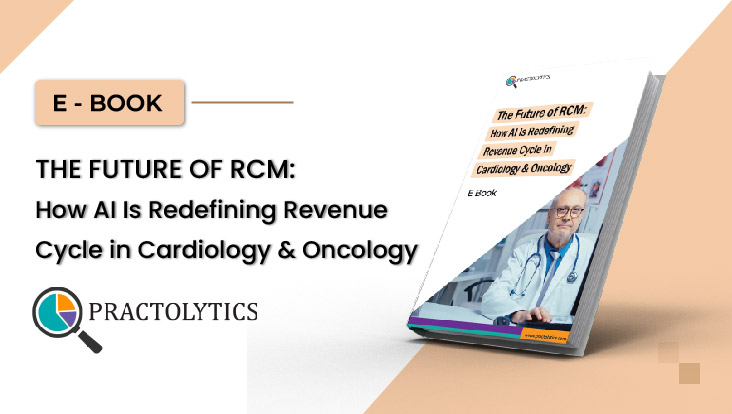

The Future of RCM: How AI Is Redefining Revenue Cycle in Cardiology & Oncology
- Evolving Healthcare Finance: Rising patient financial responsibility, complex coding rules, and costly treatments make traditional RCM inefficient, leading to claim denials and revenue loss.
- AI in RCM: AI introduces automation, predictive analytics, and accuracy—transforming processes in specialties like cardiology and oncology.
- Cardiology Benefits: AI automates coding (ICD-10/CPT), predicts claim denials, streamlines prior authorizations, and ensures compliance—reducing errors and delays.
- Oncology Benefits: AI enhances coding for complex treatments (chemo, radiation, genetic testing), improves charge capture, supports patient financial guidance, and detects billing irregularities.
- Patient Support: AI chatbots and virtual assistants simplify billing, payment plans, and insurance understanding—boosting collections and patient satisfaction.
- Future Outlook: AI will automate repetitive RCM tasks, refine revenue forecasting, and adapt to regulatory changes through continuous learning.
- Strategic Necessity: For cardiology and oncology clinics, integrating AI in RCM is essential to reduce denials, cut administrative burdens, optimize revenue, and strengthen financial sustainability.
Download the FREE Guide
Download the FREE Ebook
- Evolving Healthcare Finance: Rising patient financial responsibility, complex coding rules, and costly treatments make traditional RCM inefficient, leading to claim denials and revenue loss.
- AI in RCM: AI introduces automation, predictive analytics, and accuracy—transforming processes in specialties like cardiology and oncology.
- Cardiology Benefits: AI automates coding (ICD-10/CPT), predicts claim denials, streamlines prior authorizations, and ensures compliance—reducing errors and delays.
- Oncology Benefits: AI enhances coding for complex treatments (chemo, radiation, genetic testing), improves charge capture, supports patient financial guidance, and detects billing irregularities.
- Patient Support: AI chatbots and virtual assistants simplify billing, payment plans, and insurance understanding—boosting collections and patient satisfaction.
- Future Outlook: AI will automate repetitive RCM tasks, refine revenue forecasting, and adapt to regulatory changes through continuous learning.
- Strategic Necessity: For cardiology and oncology clinics, integrating AI in RCM is essential to reduce denials, cut administrative burdens, optimize revenue, and strengthen financial sustainability.

